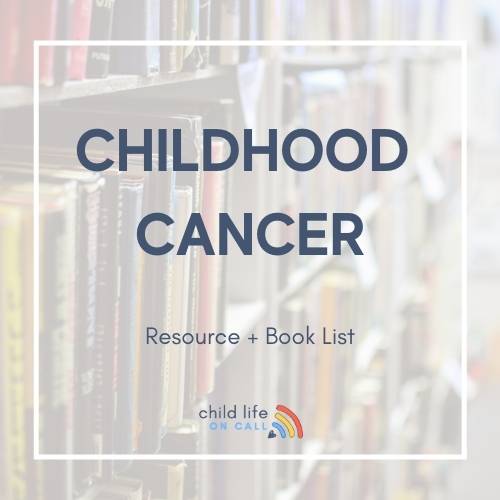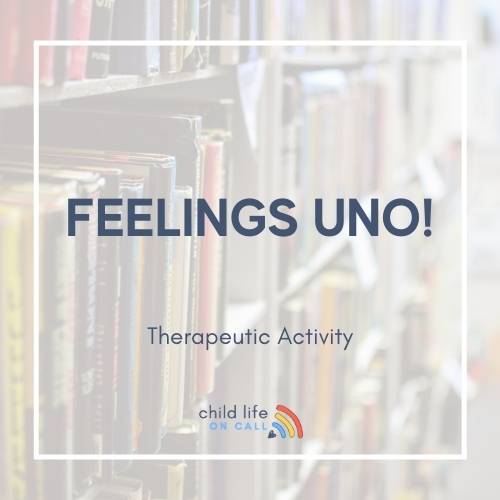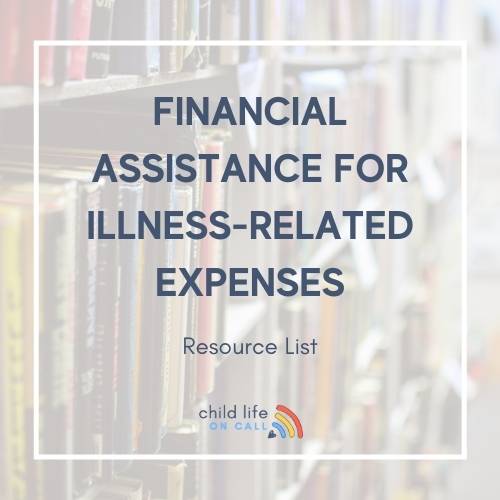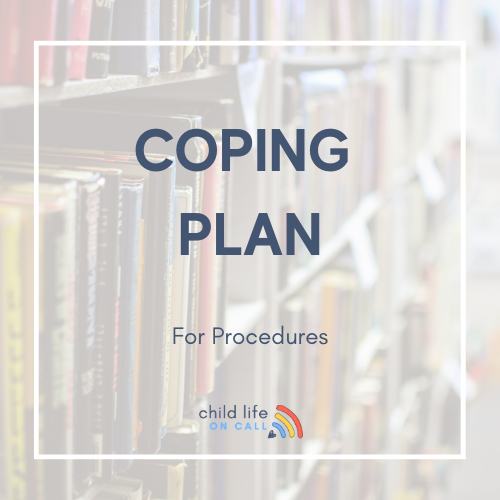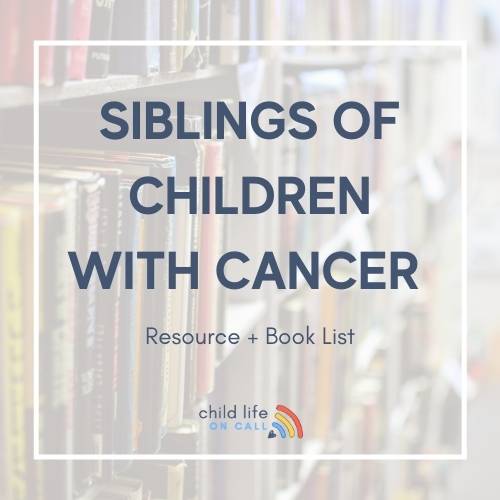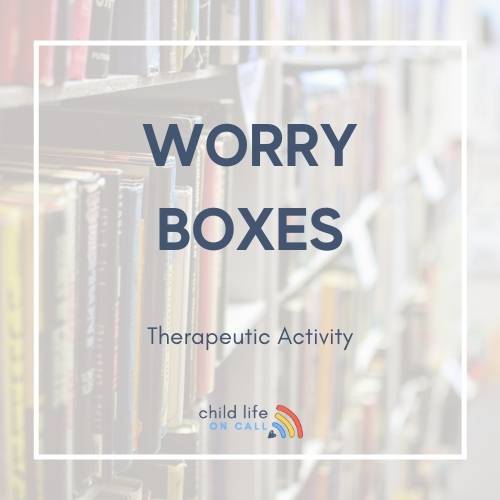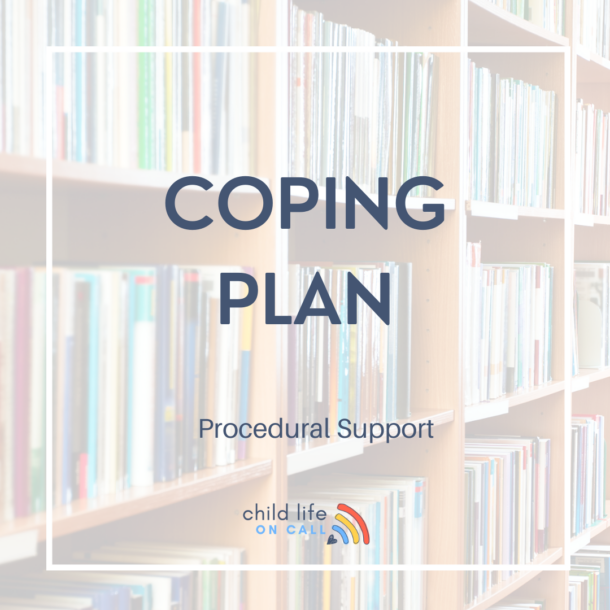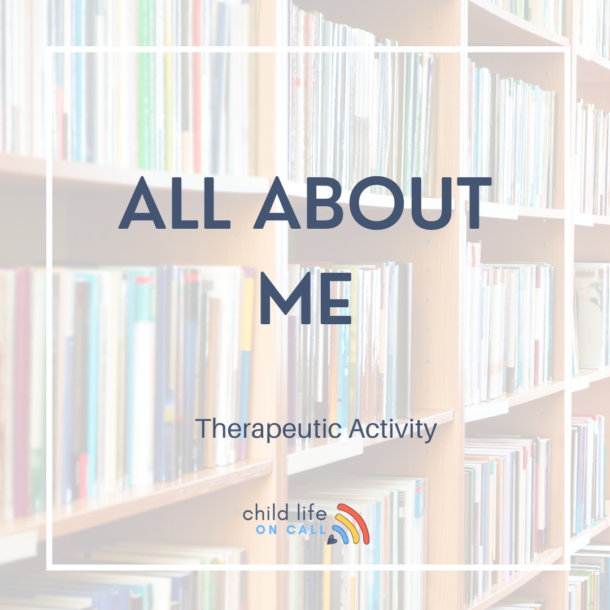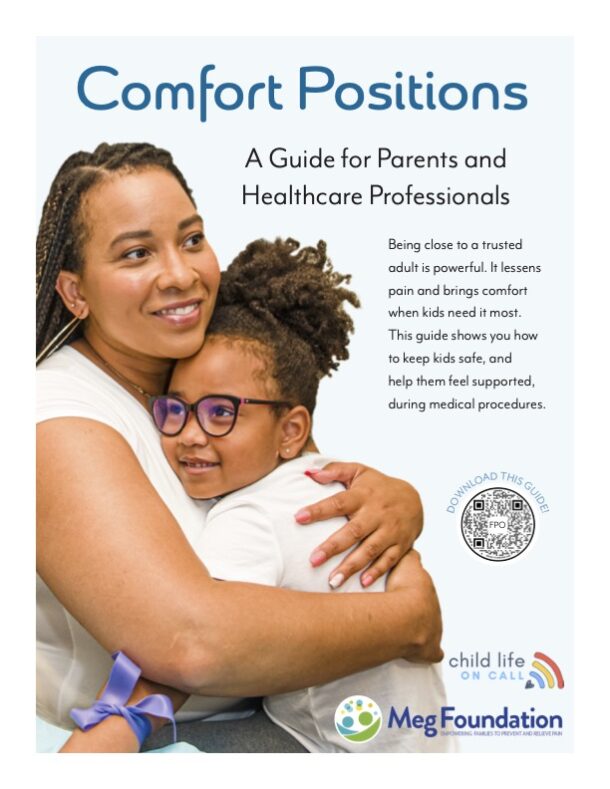"I feel like I owe it to him to explore other avenues. Acceptance doesn’t mean giving up; it means continuing to learn and adapt."- Lexi In this episode of Child Life On Call, Katie Taylor speaks with Lexi, a devoted mother of two, about her family's journey with...
Episode 191 |[Repost] Shani’s Story-A child with a learning difference #ADHD #Anxiety #Dyslexia #Dysmorphia
Podcast Show Notes
Ignite your child’s confidence and self-esteem as Shani Thornton, the empowering advocate, unleashes the secret to success through engaging activities, challenging the limitations of academics for children with learning differences.
Even if your kiddos have a learning difference, you have to find your tribe and your army of supporters. It’s the same way with a medical diagnosis. Build a network of people who understand and can support you and your child. – Shannon Thornton
My special guest is Shani Thornton.
Get to know Shani Thornton, a Child Life specialist with a career spanning over a decade. As a parent to two children with learning differences, she takes the challenges she’s faced and uses them to deepen her practice. Shani operates her own private practice, Child Life Mommy, where she offers services to those dealing with hospice care and grief, among others. Based in Northern California, her understanding of child development and practical experience of facilitating growth outside of traditional academics paint a broader picture of what it means to nurture confidence in children with learning differences.
This is Shani Thornton’s story:
Shani Thornton’s journey with her son’s learning differences began quite unexpectedly when concerns about his speech articulation were raised during preschool. As a Child Life Specialist, Shani was surprised, but proactive, seeking speech and occupational therapy for her son. When he transitioned to kindergarten, more issues began to surface. Despite added tutoring, his struggles with reading persisted, hinting at an underlying issue that went beyond speech articulation. As the years rolled on, a series of personal losses and the emergence of anxiety and attention issues complicated matters further. Despite Shani’s intuition pointing towards Dyslexia, the school insisted on attributing his challenges to ADHD. Undeterred, Shani sought additional testing and finally got the confirmation she had suspected all along – her son had Dyslexia and Dysgraphia. This revelation was a turning point, marking the beginning of a new chapter in their journey towards better support and accommodations for his learning differences.
In this episode, you will be able to:
- Immerse in Shani’s passionate crusade to ensure her children with learning differences receive the care they need.
- Delve into the complex world of digital education amid a pandemic, and how this interplays with learning differences.
- Grasp the significance and need for early dyslexia diagnosis and intervention, shaping successful learning paths.
- Learn about the strategies to foster confidence in children with learning differences, touching upon areas beyond academics.
- Grasp the role of ‘self-care’ for those caring for children with learning differences, shedding light on avoiding burnout and delivering effective support.
The Importance of Early Intervention for Academic Success
Early intervention plays a vital role in helping children with learning differences achieve academic success. Without appropriate support, children with dyslexia and similar learning differences can fall further behind. Parents should educate themselves about their child’s condition, advocate for them, and seek professional help when required. Again, Shani gave powerful insights on this topic based on her own experience. Her recommendation to seek assessments from a developmental pediatrician or psychologist as soon as learning differences are suspected highlights her awareness of the importance of early detection and intervention. This episode leaves important lessons for parents to ensure timely interventions ensuring their child’s success, both academically and emotionally.
Challenges of Hybrid and Online Learning During the Pandemic
The COVID-19 pandemic has necessitated dramatic shifts in the traditional learning environments, introducing hybrid and online learning. These changes have presented unique challenges, particularly for children with learning differences who might struggle with the lack of structure, face-to-face interaction and adapted learning approaches. Parents can help by establishing a structured learning environment at home and staying in close contact with teachers to understand and address these challenges. Shani Thornton painted a vivid picture of her own experiences with the shift to online learning. She spoke about her younger son, Blake, who like many other children struggled with the distance learning brought on by the pandemic. As a sensory child, Blake required structured environments and the transition to learning from home was indeed challenging. Through this difficulty, Shani emphasized the importance of establishing a routine, seeking support, and keeping communication lines open to effectively meet Blake’s learning needs.
Challenges of Hybrid and Online Learning During the Pandemic
The COVID-19 pandemic has necessitated dramatic shifts in the traditional learning environments, introducing hybrid and online learning. These changes have presented unique challenges, particularly for children with learning differences who might struggle with the lack of structure, face-to-face interaction, and adapted learning approaches. Parents can help by establishing a structured learning environment at home and staying in close contact with teachers to understand and address these challenges. Shani Thornton painted a vivid picture of her own experiences with the shift to online learning. She spoke about her younger son, Blake, who like many other children struggled with the distance learning brought on by the pandemic. As a sensory child, Blake required structured environments and the transition to learning from home was indeed challenging. Through this difficulty, Shani emphasized the importance of establishing a routine, seeking support, and keeping communication lines open to effectively meet Blake’s learning needs.
The resources mentioned in this episode are:
- Visit Child Life Mommy’s website and Instagram page for more information about Shani Thornton and her work as a private practice Child Life On Call specialist.
- Check out the expert episodes on the Child Life On Call podcast for content aimed at both parents and professionals in the field of healthcare.
- Take advantage of National Learning Difference Month in October to spread awareness about ADHD, learning differences, and dyslexia.
- Learn more about Individualized Education Plans (IEPs) and how they can provide additional support for children with learning differences.
- Consider seeking out a knowledgeable psychologist or therapist who can provide play-based and cognitive behavioral therapy to support children with ADHD and anxiety.
- Explore resources and tools for supporting children with ADHD, anxiety, dyslexia, and other learning differences, such as specialized reading programs or sensory tools.
- Connect with other parents who have children with learning differences to share experiences and support each other.
Whether you are a parent or professional, we want you to join our community. Sign up for our newsletter here.
Parents, download our free parent starter kit.
When you download our starter kit, you’ll learn how to:
- Give medicine to your child without it becoming a wrestling match
- Prepare your child (and yourself) for a shot so they can feel less anxious
- Create and use a coping plan for any medical appointment or procedure
The first sign of sniffles, or worse, shouldn’t send you into a tailspin. Feel confident in your role as a parent and advocate, no matter what medical situation you’re facing.
Child life specialists, get affordable PDUs on-demand here.
Shop for your CLOC gear here.
Feel empowered with Child Life On Call’s Mastering Immunizations: Expert Tips to Prepare, support and respond like a Child Life Specialist Course for Parents, Child Life Specialists and Clinicians! 🌈👨👩👧👦💉
It is the only course you’ll ever need to be able to prepare, respond and support your child at any age and stage for immunizations. Evidenced-based tips from a child life specialist who has been supporting kids through painful procedures for 13+ years. This offer will only be available for a limited time. Pre-order your course today here!
——————————————————————————————————————————————————–
00:00:00
You’re listening to episode 191, shannon’s story a Son with a learning difference ADHD anxiety Dyslexia and Dysmorphia.
00:00:14
Hello, my friends. Welcome to Child Life On Call on call. This podcast is a safe place for parents to share their stories about what it’s like to have a child that has a medical experience, diagnosis, disease, and or everything in between. We know there is power in sharing stories, and that power multiplies when you can listen to other parents who have walked a similar path to yours. Giving and getting advice is great, but hearing how another parent navigates the complexities and nuances of healthcare is even better.
00:00:44
As a child Child Life On Call, my role is to support, validate, and provide emotionally safe spaces for kids and their families. And I am so honored to be on this journey with you. In addition to parent stories, we sprinkle in some expert episodes every now and again that have content for both parents and professionals in the field of healthcare, all with the mission to empower parents to be confident advocates and partners with the care team during healthcare experiences. We’re so glad you’re here. Hi.
00:01:14
If you have been around the child life on call block for long enough, or if this is your first time joining us, one person that you absolutely have to know about is Shani Thornton, and she goes by the name Child Life On Call Mommy on Instagram and her website and is one of the most phenomenal private practice Child Life On Call specialists that has ever existed. She has done so much for our profession and today is, of course, another step with that as she shares her own personal journey in having a child with a learning difference. And this episode has actually been posted a year and a half ago, but October is National Learning Difference Month in which they recognize and spread awareness about ADHD and learning differences and dyslexia. And so we thought it would be. A great time to repost this episode.
00:02:09
Shani, as always, we are so grateful for exactly who you are and if you are showing up to this podcast. For the first time, welcome. I am Katie. I am a certified child Child Life On Call, and our mission here is sharing parent stories so that other parents feel less alone in their journeys with their kids. So grateful that you’re here.
00:02:28
And let’s go ahead and get started with talking to Shani. I’m so excited to have Shani here because she is a repeat interview for Child Life On Call on Call. She’s such a wealth of information. She’s very known, very popular celebrity status in the Child Life On Call world. So whenever she comes in to give us some insight, we just want to eat it all up.
00:02:51
But I’ll go ahead and let her introduce herself and talk about why we are chatting today. So go for it, Shani. Wow. You just really throw that red carpet out for me. How funny.
00:03:03
I do not feel like a celebrity. I just feel like another bomb, another child Child Life On Call. Just another person on the planet. But thank you for having me again. It is really exciting.
00:03:14
I always adore you. So I am Shani Thornton. I am a Child Child Life On Call of almost 14 years and I’m also a parent of two kids. So I’ve got a twelve year old named Gavin and I have an eight and a half year old named Blake. We lived in New York City with my husband there.
00:03:37
I was there for 13 years with him, went to graduate school for child life, and when he retired from the NYPD 20 years, we relocated back here to my hometown in Northern California. So we’re in a tiny little rural community right outside of Sacramento called Loomis and really just kind of enjoying life. We have a lot more space out here and I like the weather year round out here and I’ve got my family next door, so that’s really nice and just trying to get out there and live life. I’ve been doing Child Life On Call community based, so I’m a private practice. I did that in New York for a couple of years and I relaunched it after I relocated here.
00:04:22
And I specifically work really my referrals come from a hospice agency, so I do a lot of hospice work for children of adult patients. I work with kids who are also coping with a chronic illness or if they have to go in for medical or dental procedure, and I get a lot of grief referrals. So do private practice there with those families and then just a lot of workshops and stuff within the community, especially right now with COVID just supporting families in any way I can. Yeah, I think you’ve really been ahead of the curve. It’s like everything that you had done for Child Life On Call Mommy and your private practice up until this point really set you up for success in the pandemic.
00:05:03
And I know it hasn’t been easy, it’s not easy to be a one person Child Life On Call program. And I think this podcast is all about community and you are that for me, just thinking about having something that’s nontraditional child life. So you and I have been able to connect that way and it really is it doesn’t matter what it is that you’re going through, like having other people to go through it with you. Just makes it easier. Like you and I, we can talk about child life or we can talk about our kids, or we can talk about pay, we can talk about whatever it is.
00:05:38
And just having that is really great. We were chatting about schools, right? And so I have a Kindergartner that started kindergarten this year and we kept him home and then he was able to go back toward the end of last semester. And I know that’s a different option than you guys have had. And so I think we’re all just trying to share information about how’s Zoom going for you and what is your school doing in different parts of the country?
00:06:04
And that kind of led us to the conversation we’re going to have today. Yeah, absolutely. So we are basically in that same situation. Our kids are back hybrid. They were allowed to go back, I think, mid October, and they’re struggling.
00:06:23
I mean, they’ve been struggling since the Pandemic started academically. And I think just like their overall mental wellness of everybody, right. Everything is just shut down. It’s been really hard. It’s a lot of grief that we’re dealing with.
00:06:34
But you’re right, when it came to school, I think the big focal point for us is that I have two kids who have learning differences and they already struggle in school, and so they need to be in that in person classroom with an instructor who really understands their diagnosis, too, to support them. And they haven’t been given that during this time and it’s been very frustrating. So my older son, Gavin has an IEP, which I’m sure we’ll talk about. So he was allowed to go back four days a week in person. And my younger one is in the process of getting an IAP, and hopefully that is tomorrow, funny enough, hopefully that will all go well and he’ll be able to get back in the classroom at least four days a week.
00:07:22
But they need a lot of additional support already. So I think any families who have kids with a learning difference or a medical condition or your kids struggle with anxiety, being outside of the classroom and not having that structure and that normalcy, and having a teacher or a caregiver to really provide the tools that they need to learn and to feel good about themselves is critical. Right now, we are really all struggling. I know I’m not the only family who’s going through this. Yeah, not at all.
00:07:59
And so you say IEP, and so that means is that Individualized Education Plan or what does that stand for? Yeah, you got it right there. So let’s dive into, I guess your two kiddos have similar some similar and some different learning differences and talk about when you found out. I guess we’ll start with your oldest son since he was born first and kind of got you introduced. He did such a love.
00:08:30
I love this kiddo at a very young age. So preschool is when they brought to our attention that he needed some speech interventions or speech articulation. And I have to say, at the time it was caught me off guard because as a child specialist, we have all this child development training and background, but when it’s your own kid, I swear, sometimes we just have our blinders on and we don’t see it. So I remember him being almost four years old and the preschool teacher saying, like, oh, we’re having a really hard time understanding what he’s saying. I’m like, what do you mean?
00:09:08
He just said that he wants to go get the red plato. It was really clear to me, but I’m the one who’s around him all the time, so I knew what he was saying. So right off the bat, we needed to get some interventions for that. And when they assessed him, that’s when they realized that he needed some work with OT as well. So for his fine motor grip, so he got some speech OT.
00:09:31
Then that rolled into so that was the preschool committee of special ed. Then when he rolled into kindergarten is when he would get the IEP at school, and they kind of reevaluate him. And he continued to get speech and OT in kindergarten. But in kindergarten is when even prior to kindergarten, I’d say pre k or tk in some places is when the teacher said, he’s really struggling with reading and just breaking down his phonics and rhyming. I’d say, okay.
00:10:06
And we would just continue reading at home. And I was having him even work with that teacher for pre k, going into kindergarten with reading. And then, of course, in kindergarten is when they’re like, he’s still struggling. He’s got a lot to say. He’s really incredibly intelligent, very smart, but he’s really struggling with reading.
00:10:26
And I’m like, okay, so we continue to do outside tutoring for that. But it really wasn’t until first grade. First grade still struggling. But I remember the curriculum in January kind of switched over from the teacher, really doing a lot of work with the students and helping them to then in January, moving forward was really independent work, and he really struggled. It was more of his attention and focus that she’d say, he’s going to be a mayor or some sort of he’s just really interested in what other kids are doing, and he’s incredibly smart, and, you know, I’ll ask him to go do a task, and he’ll sit down, and he just gets distracted, and he forgets.
00:11:21
And for me, at the time, we were in New York, and I was already struggling with how the school system was because there was really no play, there was no recess. Recess was I remember it was scheduled one day a week for, like, 30 minutes. And I’m like, what? Are you are you kidding me? This is like child basic child development.
00:11:36
They need to be outside every day. They need to have these breaks. So I kind of blamed it a little bit towards that, and I’m like, do you think that’s what it is? And she was like, no, I think it might be something else.
00:11:49
So we kind of were watching it, but at that same time in first grade, we were hit with a lot of losses in our own personal lives. Within, I think, eight months, we had four deaths. So the amount of trauma that the family was coping with and with him, he just started having a lot of anxiety. So we went ahead and got additional support for him. And the psychologist was amazing.
00:12:21
I did all of my research as a child Child Life On Call and as a parent to make sure that I found somebody who was really knowledgeable, who understood how to incorporate play, also CBT, cognitive behavioral therapy, also working with the parents and giving us the tools, working with the schools. And that’s where they kind of diagnose them at that time as ADHD, and also with anxiety. And those go really hand in hand. So ADHD, anxiety, OCD, those are all kind of like swirl in the same type of areas. And he definitely does not have the hyperactivity part of ADHD.
00:13:07
So his is really attention focused and impulsive. So ADHD is really kind of defined in those three areas. It’s like attention, focus, hyperactivity, and impulsivity. And he kind of was in that attention, focus, impulsiveness. So that was second grade.
00:13:29
Then we roll into third grade. That was after we relocated to California. So we already knew prepping into this. There was going to be some anxiety, lots of change, and it was we got here as much prep as we put into know, the anxiety was off the charts, so we had to get him some additional support once we relocated. And that really helped tremendously.
00:13:55
However, reading was still an issue. And oftentimes people will say, well, sometimes if they’re just so anxious or there’s a trauma or they’re coping with other mental wellness issues that can block the learning and the reading part. And I’m like, I don’t know, I just feel like in my gut there’s something else. And I remember there was a week that we were here, it was in the fall, and we were going to take a family trip to Disneyland. And so what you can do is you can actually out here, you can do it’s called independent study, where you basically take your kids out for extended period of time, so you have to complete all their schoolwork, but then it’s almost like an excused absence.
00:14:41
So we did that, and I was his third grade teacher for that week, and I knew after an hour of sitting there with him, I am like, oh my goodness, there is some major deficits we are missing here on reading. And it was so overwhelming for him. So I really pushed hard for the school to reassess him again. And when you have an IEP, they do an IEP review every year, and then they do something called a triennial. So every three years they’ll do like a full screening again where it’s psychoeducation, sometimes OT speech, all of that can kind of get involved.
00:15:26
It’s a much bigger meeting. And there was some pushback from the school because he wasn’t due for his triannnual. It wasn’t due until the following year. And I said, I’m telling you, this kiddo needs to be assessed. There is something we are missing.
00:15:42
So that’s what we did.
00:15:46
And at that time we did additional outside tutoring for him. He was going to one of those learning centers for 6 hours a week, extensive tutoring, not on anything to do with schoolwork, it was just on reading. And all this stuff too is really costly, right, for families. And it’s really stressful and just seeing like, he’s in school already for 6 hours and he goes to tutoring for additional 6 hours a week. Plus you’re trying to squeeze in rec stuff for them like baseball or something that they’re interested in in.
00:16:22
So it’s not such a focus on these struggles of school. But we did that on top of asking for the triennial. But I have to tell you, when we did the triennial, the report basically came back saying that, yes, he was very low in below average in a lot of language and areas where they would find reading and writing and spelling and decoding and all of that. However, they were just going with it’s ADHD.
00:17:00
And they said to me in the very beginning of the meeting, he needs to be medicated. He was eight and a half years old and they said he needs to be medicated for ADHD. And I just looked at them and I said, wow. I was like, thanks for that information. I would have to speak to his pediatrician who’s a doctor because you’re a special Ed instructor.
00:17:27
Then I came back with, you also know that he’s struggling with anxiety and so if we give him a stimulant for ADHD, that’s going to heighten his anxiety. And he came back with, well, then you just give him a medication for the anxiety. And I’m like, wow, he’s not getting this full picture. And I said, okay. We continued to go through the report and I remember explaining to them, I’m looking at these numbers and you’re telling me that my child just has ADHD.
00:18:00
However, it makes no sense to me that everything that has to do with the language part, he’s below average or he’s right. They’ll call the average range and it’s a huge range, right? But he’ll be on the very bottom of average. I’m like, it doesn’t make sense. And I said plus in math he’s got these strong skills so why wouldn’t ADHD affect that too then like any of that attention and focus and they just stuck with it.
00:18:27
And I remember clearly in the meeting saying, do you think he has Dyslexia? They’d say no. Do you think he has Dysgraphia? No. Do you think maybe there’s an auditory processing?
00:18:37
No. And so they left the meeting at that and I was just really frustrated. So we continued our journey and we did some additional outside testing for him. And sure enough, they looked at what the school had done and they said even on those reports, they’re like, it can show here, right here, that he has Dyslexia. So they did additional screening, they showed that he has Dyslexia and dysgraphia dysgraphia is the written component of Dyslexia.
00:19:11
So then from there, we had to roll it back into school and do then they call it an IEEE, which is an Individual Educational Evaluation.
00:19:22
And that was rolling into so rolling into fourth grade is when we started interventions for Dyslexia and Dysgraphia and trying to get the right accommodations for him in person in school. We’ll be right back. One of the things I am asked the most often as a child Child Life On Call, not only by the patients and families that I’ve worked with, but by my friends, is, how can you support and prepare your child for a shot? And as a parent myself, I know sometimes it’s so hard to even concentrate on what the doctor is saying because I’m so nervous about my child having to get a shot. And yes, that’s even coming from a child Child Life On Call.
00:20:01
Thankfully, I can rely on what I know about child development, family centered care and traumainformed care to pull on medical stressors that could come up for my child, and I know how to support them through it. And now we want to give parents those same tools that Child Life On Call specialists use. And that’s why I’m so excited to. Share with you our new course that’s made just for parents. We have worked with instructional designers who are experts in making courses online.
00:20:29
We want to put you, the parent, in the driver’s seat of these appointments. What we do is we go by age group and tell you exactly what the stressors could be for your child and what the interventions are that a child Child Life On Call would use to help your child through having to get some sort of poke. If you’re a parent who wants to walk into your child’s medical appointment and instead of feeling overwhelmed with anxiety, you want to feel empowered and know how to prepare and support your child and how to advocate for them, then this is the course for you. This course will only be available for four weeks, so go make sure you pre enroll for the course this fall. Go to Child Life On Calloncall.com.
00:21:12
MyChild needs a shot. That’s Child Life On Calloncall.com MyChild needs a shot.
00:21:24
I’m just thinking about you’re so well versed in this topic and have the resources to be able to look up information.
00:21:34
What else did you do to kind of like you followed your gut instinct, but I guess who did you turn to when you were trying to figure this out? It feels like if the school isn’t on your side, not that they’re not on your side, but the school wasn’t hearing you. So who did you turn to to kind of find out these extra programs that you could get them tested for? That’s a great question. I think you look at it like even if your kiddos got a medical diagnosis right, you have to kind of find your tribe and your army of supporters.
00:22:10
And it’s the same way with a learning difference. The same thing. It’s like a weird parallel that I’ve been going through, and I felt comfortable talking to some family members about it. And then I also just found friends. So, honestly, the one who introduced me to the school that tested him and confirmed the Dyslexia was also a new family that started.
00:22:36
And she said that her son had Dyslexia. And I said, I have been researching this for years because I brought it up to the teachers in first grade, second grade, third grade, do you think he’s got Dyslexia? And she said, no, there is additional testing for that. And I’m like, oh, my gosh. So she was kind of my supporter, and that’s when I kind of just found Facebook groups on this stuff.
00:23:02
Other parents who are also going through similar things, you start to find those connections. And then just when I just dove in to try to gather as much education because we know education is empowerment, I can’t go into the school and advocate something if I don’t really understand it. And it’s not overnight. This has been several years of this, of trying to kind of figure it out. But it’s also that grief process.
00:23:35
Right? I think that’s a part that we go through when our kids might have a medical diagnosis. And it’s the same for, I think, a learning difference of, like, you imagine your kiddo being successful and not having any troubles with school, but this is a lifelong journey for him. So there’s some grief on there of like, is he going to be okay? Is he going to be bold?
00:24:04
Is he going to be able to get into college? Is he going to be able to do everything he wants to do? So there’s that personal thing as parents that I know I was struggling with. I’m sure my husband was as well. Yeah, it’s so interesting, and it sounds like kind of like you said, finding your tribe makes a lot of sense, because when your child is going to school, it’s not a choice, right?
00:24:27
They have to go. They have to meet these specific requirements. They have to pass on to the next grade level. How did you balance getting him through, especially those first four years in school, without having the diagnosis and the interventions in place? How did you balance getting schoolwork done but also making it somewhat of a pleasurable experience?
00:24:50
I don’t know how else to put it. Like, he got through it. So you did something right, and so I want you to tell us what it was. Oh, God. It was never I mean, he hated the schoolwork.
00:25:05
He loved going to school for the social part of it, and he loved learning. He’s incredibly intelligent. He just when it comes to reading and writing was hard. I felt like in second grade, he had amazing teachers. In second grade, he was in both, like, a special ed and a general ed class, and it was perfect for him.
00:25:27
So he had a lot of great support. But no, it was tough. It was torture, and there’s a lot of parenting. There was a lot of struggles and fights and tears and sometimes of just like, this isn’t worth him trying to do his spelling words for an hour and a half.
00:25:51
It’s not working. We’re just going to be done now. So there’s that part, too, like knowing. When to stop, when to push. It’s going to change.
00:26:04
How did you explain to him, I guess, once he was finally diagnosed with this learning difference, ADHD, anxiety, dyslexia. Dysgraphia. How did you explain those in terms that he could understand?
00:26:18
Well, it’s funny because the percentage of ADHD who have Dyslexia is incredibly high. I want to say something like 70%. Don’t quote me on that, but it’s definitely high. It’s a high number. At first when we got the diagnosis, I was actually like, oh my gosh, how are we going to do this?
00:26:44
And my husband and I are like, I don’t know. And I’m like, okay, let’s go back to I’m going to go back to child. I’m putting my child life hat on here, and I’m going to remind myself that education is empowerment. We are going to empower him with this because I think he’s going to be relieved actually knowing that there’s a name for it and that there’s nothing wrong with him. Now we know, oh, my gosh, do you know that there’s an intervention that we can use that’s going to get you to read where you’re at, where you need to be at?
00:27:20
And we basically explain ADHD as like, you got a busy mind, you got a busy, active mind and a body. So I also talk about his frontal lobe, and I’ll talk about his executive functioning in the front part of his brain and say sometimes I’ll say, you know, when we pour macaroni and cheese in the little colander? Is that what it’s called, colander? Right? And you’re sifting it through, I said, and all that water drains out, but we keep the noodles.
00:27:55
And he’s like, yeah, I go. Basically, the front part of your brain sometimes doesn’t have that, and all of the noodles and the water will just come out. And that’s kind of like what happens with ADHD when you want to just say something or do something, it just comes out and you don’t filter it. And it could be an excitement that you want to add to a conversation, or it could be like an intense reaction that you have to something, and that’s sometimes why you just will shout out, and it might not be the most appropriate thing to say or to do. So we have to work on kind of strengthening that skill so that that doesn’t happen and it really brings the awareness to him first.
00:28:45
So that was ADHD and then anxiety. We just talk about it. It’s like it’s a worry. It’s the inside of your brain, and it’s got this worry and this alarm, and it’s really healthy to have we need to have that right to keep us safe. But sometimes that little guy will just talk about things that really aren’t you don’t really need to worry about.
00:29:09
So we need to use the top part of your brain to really think about it. We need the thinking side to kick in. We need to logically think about some of these worries, like you’re scared of, say, killer bees, okay? So let’s think about how many times have you seen a killer bee and then just make him problem solve there. How many killer bees?
00:29:38
What’s the number of killer bees that have actually killed somebody? I make him problem solve through it, and then he realizes logically, that doesn’t make any sense. So not so worried about it. Dyslexia, you got to get creative, right? Dyslexia.
00:29:55
Okay. So I had to say that when they told us that he has Dyslexia and Dysgraphia, they said it runs really strong in the family along with ADHD. And I knew the ADHD came from my side of the family, but the Dyslexia, I’m like, really? And they’re like, does anybody have it in the family? And I’m like, no, I don’t think so.
00:30:15
And I just start thinking about it. And as I’m learning more about what it is, I’m like, oh, my gosh.
00:30:23
Ding, ding, ding. He gets it from his mother. I have it 100%. And it was my reflection of how I struggled with reading and writing my entire life. I still do.
00:30:38
I cannot pronounce a lot of words. I sometimes have word retrieval issues. I have to edit just a simple email with three sentence on it. Sometimes it takes me ten minutes to do it, but that’s because it manifests in you in a different way, and I know I have it, so that also kind of normalized. It for him to teach him that I have it, too.
00:31:00
So there’s nothing to be okay, nothing to be ashamed of. But basically we just explain it. That your brain. Or people who have Dyslexia, their brains just learn to read and write and spell differently. You’re just as smart and bright.
00:31:16
Has nothing to do with intelligence. I often will teach about it. I’ll say when we go to the baseball field, we take this one path to get there, and a lot of people will take that main road to get there. However we’ve got Dyslexia, we might take another route. Might just kind of go over the hill and through the neighborhood to get there.
00:31:39
But we can still get there. We’re just going to take a different path. That is what dyslexia is. You’re taking a different path to learn to read and write. That’s it.
00:31:48
You and your analogies. These are pure gold. I hope that people are writing these down.
00:31:58
Graphia. Is just the writing component of it. It’s just getting the information from your brain down on paper. Sometimes it just takes a little bit longer and we just need more time or we might misspell things. And there’s nothing wrong with it.
00:32:15
I think normalizing it and bringing in a lot of humor helps a lot. It’s sparking something for me. I have had anxiety my whole life, and I was very fearful of planes back in the day, very fearful. And I don’t know if it was my mom or someone or I read it or looked it up, but I read that more people are killed annually by donkeys than by planes. And that level of like, you know what?
00:32:47
That’s just not a lot. I don’t know a lot of people around donkeys who have donkeys. And so it’s so true. It’s also kind of humorous. Right?
00:32:57
It’s like literally breaking it down, figuring it out. And I love your analogy about taking a different road. Gosh, we can apply that to so many different things. Everything right? I know.
00:33:13
Yeah. That’s how we excite it. So I have you just for about ten more minutes. And would you talk to us about how taking all of the interventions that you’ve learned with your boys and what you have done in the era of hybrid school and online learning and any get, takeaways or giveaways for parents who are going through the same thing, this. Has been a hard path.
00:33:44
I think making sure they have the right accommodations is key. And having that open dialogue and that communication with the teachers and the school, and if they have resource time, if they’re getting outside support with a tutor, the communication has to be there and teaching them how to advocate for themselves, that’s been key. My younger one, Blake, also has Dyslexia and Dysgraphia, and he has struggled the most with distance learning. He essentially shut down last March when we went into lockdown at home and distance learning, he was like, oh, no. Brain stopped working, was like, I am not doing this.
00:34:32
He is a sensory kiddo, and he needs to be in structured environments. So taking him from the classroom to home to try to teach has not been pleasant for him. His self esteem and confidence went right down the tubes, and he just felt like all of his peers were fine and they are doing great, and they are feeling successful in reading and writing and multiplication, and he feels the complete opposite. And because he’s not in a classroom with them, he couldn’t see that they’re also struggling.
00:35:19
I think our big push for him was making sure that we could build his confidence as much as we could without having so much pressure on academics. So I was more focused on soccer and riding your scooter and making really good choices and feeling proud of yourself and all of that stuff to kind of fill his cup and it helped. We were seeing it kind of go up. He also started receiving OT outside of school, and that was really helping. She just kind of focused on building his confidence and doing motor planning and find motor grip stuff.
00:36:03
And he was starting to feel like, okay, I can get stronger. I can work through this. This is hard, but I can do it. And you start to feel more that intrinsic type of motivation. But it’s been a tough year.
00:36:20
It really has. I really appreciate you because you’re not saying, oh, we just pushed through and we got it done, because that’s not happening. Right. And I think for other parents to hear that that’s okay if they haven’t pushed through and just got it done, because that’s not a successful outcome. Right.
00:36:41
That’s just hurting things along the way, making harder experiences harder, and focusing on the things that they are good at, even if that’s outside of school. I mean, we’re developing humans here. We’re not developing multiplication mathematicians, and maybe we are later down the road, but just the real focus on, like, this is a pandemic. It’s okay to not be successful at everything academically. It’s okay to have a hard time getting through it and be good at something else for right now.
00:37:20
Yeah, well, you really have to find that balance because especially right now with kids who don’t even have a learning difference, I know they’re struggling. Everyone is struggling. So you have to fill that cup of self confidence and healthy outlets of expression, and parents have to practice that, too. We do have to be good about self care, even if it’s five minutes a day of having a cup of coffee to yourself or watching a reality TV or going to the gym, if you can, or going out for a walk, whatever it is. Because if we don’t fill our own cup, we are fried.
00:37:57
Everyone’s pandemic fatigue, and that makes it really tough. But I think accommodations for kids within a classroom setting or if you’re doing distance learning, needs to happen. So we do a lot of voice detects for the kids. I read out loud all of the books and stuff to Blake. Gavin uses books, and we found outside instruction for them for a learning program for kids with Dyslexia.
00:38:31
So that goes under, like an Orton Gillingham program. And it’s somebody who provides explicit, systematic, evidence based curriculum in a multisensory approach to kids who have Dyslexia. And that’s the only way that they’re going to learn to read, and our school doesn’t offer it. So we say we’ll get the outside stuff. They’re going to help them on this area, you help them on this area, but please don’t try to do any interventions.
00:39:00
We’re reading with them at school because it’s not helping. That’s not the way their brains learn. So you need to back off from that. Let us do that over here, since you’re not providing it. I prefer if they could do it in school, that would be amazing, but it’s not an option.
00:39:18
Well, Shani, what would you say to a parent who is maybe know, I think your little experience with before your family trip and getting to see, what is my kiddo doing in school, we’re all kind of getting that right now. We’re all being able to see how do our kids actually function in school. For parents who are suspecting that their child may have a learning difference, where would you tell them to start? Go with your gut. This is truly the best time to find out if, wow, my kid is really there is something else going on.
00:39:53
A lot of schools do not assess kids for Dyslexia, and it’s one out of five children. One out of five kids. That is a big number that have it. And oftentimes they kind of just get lumped into like they’ll catch up or they just need some more time. The problem is they don’t need more time.
00:40:13
What they need is the appropriate intervention for that. So if you suspect it, if it runs in your family, learn about it, read about it, and advocate to get your child assessed. You can have them assessed at school. However, the schools will not diagnose for Dyslexia, so you need to go outside. Usually it’s like a developmental pediatrician or like a psychologist, somebody there.
00:40:44
But I would just start that ball rolling and start the assessment too with getting an IEP at school because it’s a lengthy process. It’s not overnight. They have months to do this and it takes some time. And the problem is, we don’t have a lot of time with kids with Dyslexia. You don’t.
00:41:04
You need to start the intervention as early as you can so you can balance that confidence and the self esteem for them, because school is going to get harder, and if they’re already behind, they’re going to continue to fall behind. So you need to balance their confidence with giving them the appropriate intervention and making sure everybody is on the same team that’s going to help them feel successful in school and outside the school. Absolutely. It’s like there should be zero shame around learning differences. I think about, like, if you have a bacterial infection, rest and sleeping and a lot of fluids is not going to take away the bacterial infection.
00:41:45
Right. So you go to the doctor and you get the medication you need. If you have Dyslexia, you have ADHD, you have Dysgraphia, you have to go get those interventions, which would be like the medication right. And to get it taken care of and be able to get through it. So I think that’s great advice.
00:42:03
I love that they don’t need more time. They need the right interventions. And I think that’s a big message to send. So I’m so glad that you were able to share your family story with us. Thank you so much.
00:42:16
I appreciate it. It’s been a journey. But I will say, being a child Child Life On Call, it is very OD being on this route. It’s like really parallel you’re like, wow, I’ve helped families cope with the medical journey. I’m coping with the learning difference journey.
00:42:33
And it’s so similar. It really is similar, but it’s weird being on the mom’s side of it and she’s got to advocate and that’s all I can say. I just keep advocating. Teach your kids to advocate. Thank you so much, Shani, for joining us.
00:42:47
Thank you all so much for listening. To Child Life On Call On Call. If you head to our website, Child Life On Calloncall.com, you’re going to find all sorts of stuff there for parents, professionals, healthcare providers, Child Life On Call specialists. No matter who you are, actually, when. You just go to our homepage, it’ll tell you.
00:43:02
It’ll help you direct to exactly where. You need to go on that, you’ll find opportunities and PDUs for Child Life On Call specialists parents, we’ve got a starter kit for you and clinicians. We even have a clinician course which teaches you how to be a confident and capable caregiver in pediatrics. We’re so grateful that you’re here. Please DM us on instagram.
00:43:24
And like I mentioned, when you rate. And review this podcast, it helps other. Families be able to find us. So let’s keep doing that and I will see you again here next week.
You Might Also Like…
223: A son with Burkitt lymphoma at 8 year’s old – Reina’s Story
"My immediate thought was I'm going to lose my son. That was where my head went immediately." - Reina Introduction In this episode of Child Life On Call, Katie Taylor talks with Reina, a devoted mother from Nashville, Tennessee. Reina shares her heartfelt journey of...
223: [6 minutes] The Child Life On Call App is Now SupportSpot!
Episode Description: In this special impromptu episode, Katie Taylor, Certified Child Life Specialist and CEO of Child Life On Call, shares some exciting news! We're rebranding our beloved Child Life On Call app to SupportSpot. Tune in to hear why we made this change...

